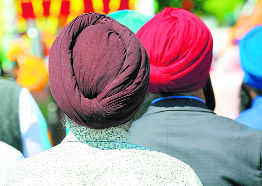 New Delhi: A new study suggests that night shift workers may be more susceptible to developing obesity.
New Delhi: A new study suggests that night shift workers may be more susceptible to developing obesity.
Researchers believe that disrupted circadian clocks are the reason that shift workers experience higher incidences of obesity and even diseases like cancer and type 2 diabetes.
The body’s primary circadian clock, which regulates sleep and eating, is in the brain, but other body tissues also have circadian clocks, including liver, which regulates blood glucose levels. If circadian clocks are continuously disrupted, it may lead to obesity in shift workers.
The new study analysed 14 healthy adults over a six-day period.
For the first two days, the participants followed a normal schedule sleeping at night and staying awake during the day. They then transitioned to a three-day shift work schedule when their routines were reversed.
“When people are on a shift work-type schedule, their daily energy expenditure is reduced and unless they were to reduce their food intake, this by itself could lead to weight gain,” said Kenneth Wright, director of University of Colorado Boulder`s Sleep and Chronobiology Laboratory and senior author of the paper.
The reduction is probably linked to the mismatch between the person`s activities and their circadian clocks, said Wright.
“Shift work goes against our fundamental biology,” Wright, also an associate professor of integrative physiology, said in a statement.
“Shift work requires our biological day to occur at night and our biological night to occur during the day and that`s very difficult to achieve because the sun is such a powerful cue. We can have some change in our clock — a couple of hours — but then on days off, it goes right back. Shift workers never adapt.”
The research team, however, was surprised to find that the study participants burned more fat when they slept during the day compared to when they slept at night.
It`s not clear why this happens, Wright said, but it`s possible the extra fat-burning is triggered by the transition day between a daytime schedule and a nighttime schedule.
He cautioned that this would not lead to weight loss because the total energy expenditure over the three days of shift work was lower.
Further research is needed before specific recommendations can be made for how to improve the health of shift workers, Wright said.
“What we can say is that it`s perhaps even more important to have a healthy diet for shift workers as well as a healthy amount of physical activity,” he said.
The study is published in the US journal Proceedings of the National Academy of Sciences.
(With Agency inputs)




 Girls again, clinch top three spots in Class X PSEB exams
Girls again, clinch top three spots in Class X PSEB exams

























